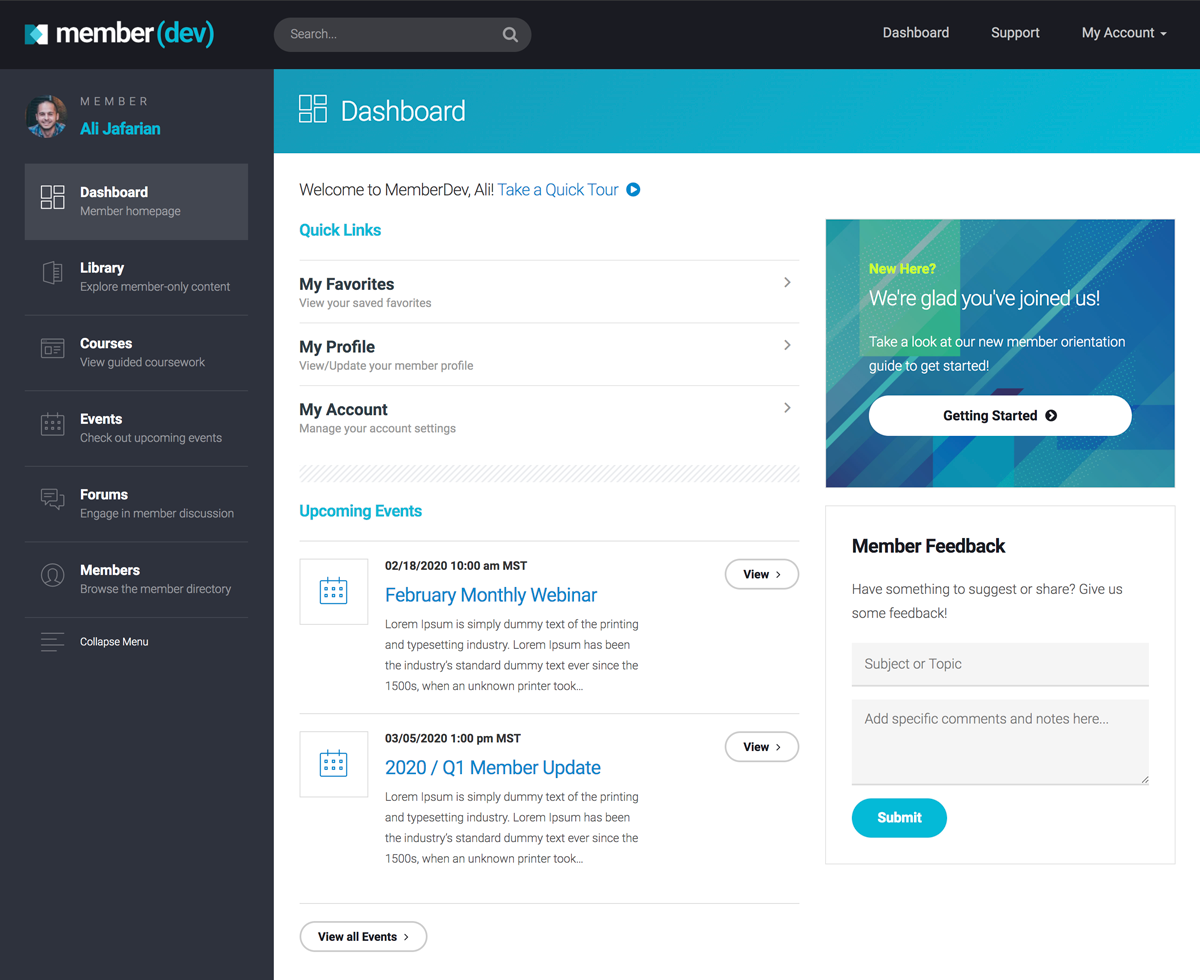What? WordPress isn’t made for product development… so why on Earth would I use it for a SAAS product MVP (minimum viable product)?
You are correct – WordPress wasn’t originally made for product development. It was made for blogging over 12 years ago. However, since then it’s become one of the world’s most widely used software frameworks for website development with over 30% market share. Yes, roughly 30% of the world’s websites run on WordPress.
Do I have your ear yet? Good. Now let’s talk about SAAS product development.
If you’ve ever built a SAAS product you know the effort and challenges involved. From your sales funnel to your user experience, there’s usually A LOT of work to create something people will pay for. And to be clear, I’m not talking about a little social app for sharing shit… I’m talking about a B2B SAAS app that generates revenue from day one.
Some of the core things you’ll have to build out for your SAAS app include:
- User Registration / Login
- Payment Processing
- Email Integration
- Notifications and Alerts
- And much more…
Coding these things from scratch would be a very bad business decision, unless of course, you get to the point where none of the tools available could meet your specific technical needs. Very few companies build ALL of their tools from scratch. In fact, the only one I’m aware of is Google. You’ve probably heard of them.
Needless to say, there are common frameworks and tools for building SAAS products. Many of them offer plugins to aid in development and speed up time-to-market. These are essentially modules of code that you can “plugin” to your app and get instant functionality (ex: payment processing) instead of building them yourself.
Great. Now let’s talk about your options for frameworks. In other words, the specific technologies you can leverage to build a SAAS product.
Some of the popular tools include:
– Ruby on Rails (Ruby)
– Microsoft.Net (.net)
– Spring (Java)
– Django (Python)
– Laravel (PHP)
– Node + Other JS Frameworks (JavaScript)

There are plenty more… but these are some common mainstream frameworks. Most of them revolve around MVC, a popular design architecture that aids in SAAS product development. Thousands of SAAS products have been built using these frameworks, and thousands will continue to leverage them in the future. They are solid tools that offer a solid foundation for product development.
So what’s wrong with them?
They take too much time and effort.
What? Yes – they’re too expensive from a resource standpoint, especially if you’re trying to build a MVP or proof-of-concept. Most of these tools require a lot of upfront work to do foundational programming. For example:
- Build the server environment
- Build the tools that are needed on compile
- Create the database
- Design the data models/structure
- Create the code that hooks into data
- Wire up your front-end interface
- Build the user registration/authentication process
- Hook up payment processing
- etc.

That ^ is a good visual of all the stuff you have to consider when building a web application from scratch… it’s A LOT of work.
Most of this should sound like a foreign language if you’re unfamiliar with technology, especially web technology. But if you are a techie, this should make sense. There’s just a lot to consider and build in the beginning. To do all this with one of the frameworks above just takes time…
Ok. Then what’s the alternative?
Say hello to WordPress. If you haven’t met her, she’s an open source platform for building dynamic websites. As I mentioned before, she powers roughly 30% of websites on the internet. She’s the real deal.

Why is WordPress better?
Most of you will have a lot reservations with this, especially the code divas out there. I already know what you’re about to say –
“WordPress is for blogging.”
“WordPress has a limited data model.”
“WordPress is heavy and filled with bloat.”
“WordPress isn’t designed for product development.”
And of course, my personal favorite –
“WordPress doesn’t scale.”
Let’s address these in order.
Not Just For Blogging
1) WordPress was originally built for blogging 12 years ago, and since, has become the most commonly used content management system on the planet. It is arguably the best tool for building full-blown, dynamic websites. Not just blogs.
MySQL = Open Data Model
2) WordPress offers a default data model around post architecture. This keeps the framework efficient for content creation and management, it’s core value prop. However, WordPress uses MySQL as a database, which offers you the ability to create new tables for additional data modeling. This is something you would have to do regardless of what tool/framework you choose.
Weight is Light
3) WordPress is actually pretty light out of the box compared to most frameworks. It gets a bad rap for being heavy and bloated when inexperienced developers stack plugin after plugin into their site. This happens with any framework, so it’s not fair to single out WordPress.
Designed For Product Development?
4) True – WordPress is not designed for product development. However… it offers some pretty compelling reasons to use it for product development. These include:
- User registration and authentication built right in.
- Core query models for streamlined data access.
- Great UI templating features and customization.
- A plethora of plugins for flexible payment processing.
In short, you can spin up a basic ecommerce/subscription site in a matter of hours. That’s hard to say for most other frameworks.
WordPress CAN Scale
5) And finally, it does in fact scale. There are thousands of sites and web apps doing millions in revenue that run on WordPress and continue to grow. People who say “It doesn’t scale” don’t truly understand what scaling a web product requires. People scale technology. Technology itself doesn’t scale. So if you’re people are incapable of scaling WordPress you probably have the wrong people for the job.
So… give it a shot!
I’m sure you have other questions and concerns, most of which come from bias in the tech world. And I’ll be the first to say that WordPress is not the best solution for every SAAS product. However, in the event that you’re shooting for a lean and mean MVP (minimum viable product), it’s one of the better options out there. It will save you time and money, which are 2 essential resources for any startup product.
To be fair, I’ve built SAAS products both ways. I have a heavy-hitting Rails SAAS product and several WordPress SAAS products. I also run an agency business that helps early stage companies build their SAAS products. When it comes to new SAAS products I typically use WordPress for 90% of our client projects. Why? Because it offers a faster, more cost-effective way for us to build our clients’ MVP. My Rails app took much longer to build and still takes more time and resources to support regularly.
That’s the point of this article. Not to sway you one way or the other, but to help you understand that WordPress is an option for SAAS product development, and in some cases, it’s the better option.
I would love to hear your questions and general thoughts. Please share below!




